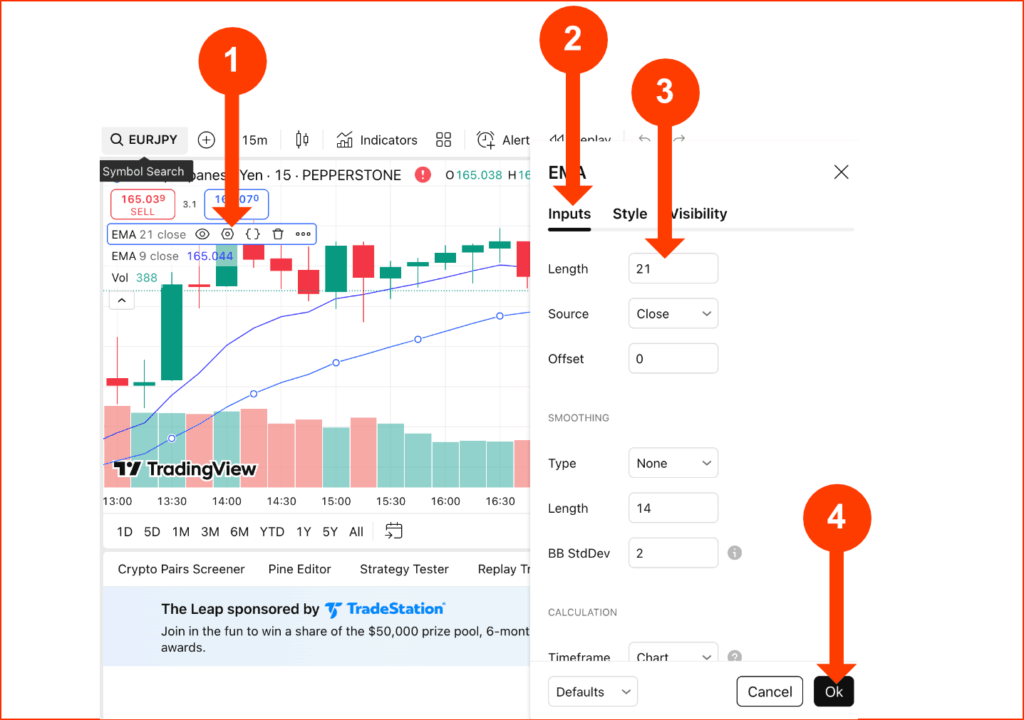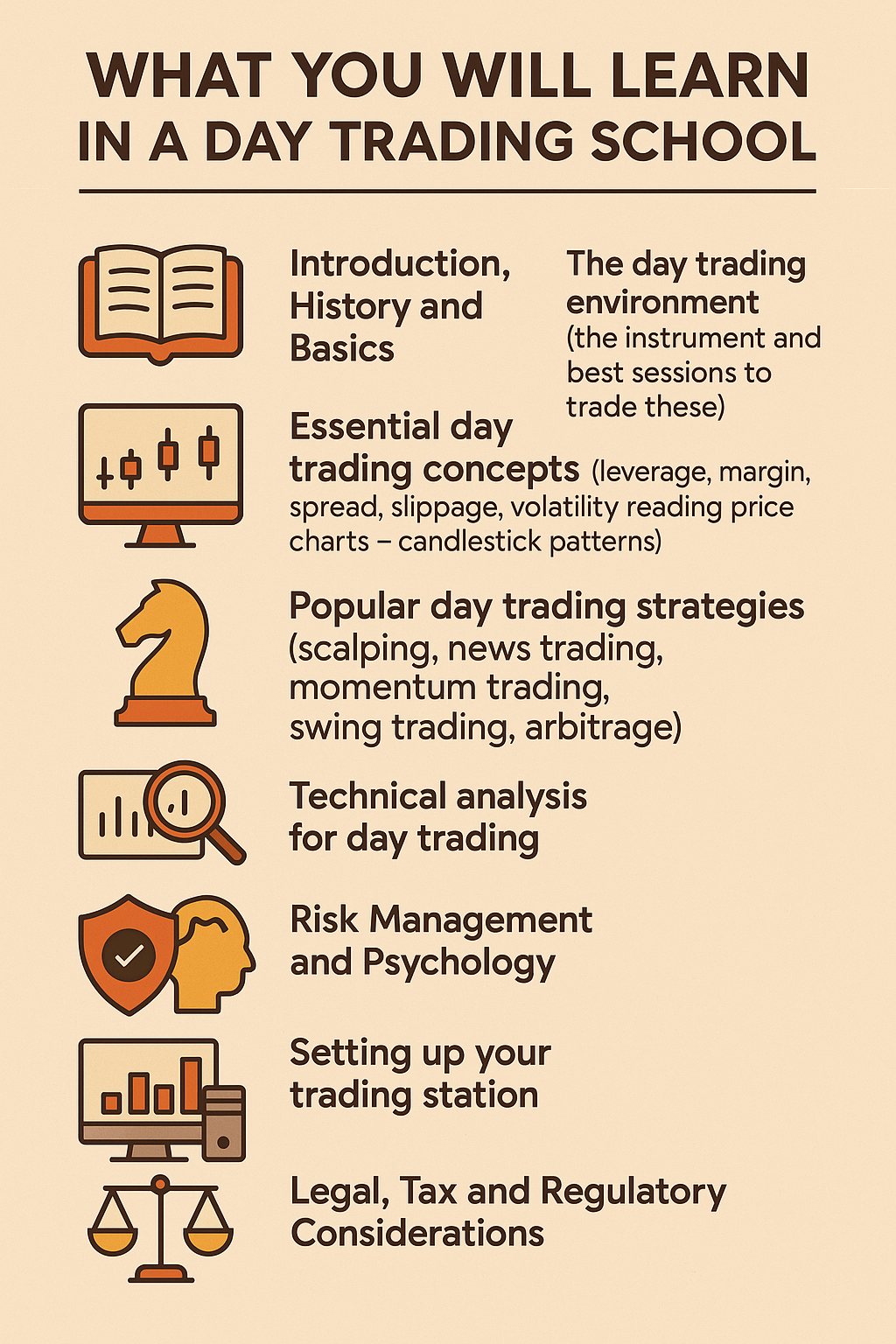
Global forex trading revolves around the activities within the foreign exchange market — a decentralized, worldwide marketplace where currencies are bought and sold. Traders from around the globe interact in this market, either manually or virtually, through advanced online systems. Trading occurs around the clock across key international trading centers, pausing only over weekends.
What Does Global Forex Trading Involve?
Global forex trading involves the buying and selling of currencies for profit. Traders can trade pairs like EUR/USD, GBPUSD,USDJPY, etc. The movement of currency pairs like any instruments in the market can react important economic and geopolitical news.
Traders can use leverage offered by their brokers (like Pepperstone) to increase the size of their positions in the market. For tracking price movements and analyzing trends, platforms like TradingView offer powerful charting tools. The global forex market is open 24/5.
Who Controls the Forex Market and How Does It Work?
No one controls the global forex market. However, it is important to note that banks, governments, and traders drive prices. Central banks set rates and then the supply/demand interplay is what does the rest.
Top 10 Players in the Forex Market
- Commercial Banks (e.g., Deutsche Bank, UBS).
- Central Banks (Federal Reserve, European Central Bank).
- Hedge Funds (e.g., Bridgewater Associates).
- Multinational Corporations (e.g., Apple, Toyota – hedging currency risk).
- Retail Forex Brokers (e.g., IG, Forex.com).
- High-Frequency Traders (HFTs) – Algorithmic trading firms.
- Governments (via foreign reserves management).
- Investment Managers (e.g., BlackRock).
- Market Makers – Provide liquidity.
- Retail Traders – Individuals trading via brokers.
How Does the Forex Market Move?
The currency pairs rates shift either upwards or downwards from the impact of these factors:
- Economics (jobs, inflation).
- Central banks (rate changes).
- Politics (elections, wars).
- Trader psychology (fear/greed).
So in a nutshell this how the global forex market rolls: News + speculation = price swings.
What Is Global Forex Trading?
Since the 1990s, enormous advances in technology have fundamentally transformed the foreign exchange market, opening it up to a far broader range of participants.
What was once an exclusive domain for banks, large firms, and select financial institutions has now become a vast, decentralized arena where anyone with internet access and a trading platform can participate.
Global forex trading is the process of buying and selling currencies on the foreign exchange market with the aim of making a profit. It involves traders operating virtually or in person through online platforms that connect buyers and sellers worldwide.
Trading is facilitated by advanced digital technologies, live data feeds, and professional platforms offering traders real-time market information and execution capabilities.
A comprehensive understanding of global forex trading involves appreciating the role of major interbank trading platforms such as Electronic Broking Services (EBS) and Reuters 3000 Extra.
These are two of the most significant systems through which large institutional players execute currency transactions. The value of currencies within the global forex market is constantly determined by supply and demand forces operating within these decentralized trading environments.
What Is the 90% Rule in Forex?
A common industry adage known as the 90% rule in forex suggests that approximately 90% of new traders lose 90% of their capital within the first 90 days of trading.
While this statistic isn’t scientifically confirmed, it serves as an important reminder that forex trading requires knowledge, discipline, and effective risk management.
Using demo accounts, practicing strategies, and understanding market dynamics are essential steps in avoiding common pitfalls.
Is FX Available in South Africa?
Yes — forex trading is entirely legal and accessible in South Africa. Local and international brokers actively serve the South African market, offering residents access to global forex platforms.
Many reputable platforms provide South African Rand (ZAR) trading pairs, allowing local traders to participate in the global market using local currency accounts or international forex trading accounts.
Can You Make Money on Forex?
Yes, it is possible to make money on forex, though it comes with risks. Profit potential in forex trading lies in the ability to correctly anticipate market movements and execute trades strategically.
Traders leverage market tools such as technical analysis, economic news updates, and trading calculators to improve their odds.
However, it’s essential to remember that forex trading involves a high level of risk, and many new traders incur losses without proper strategy and experience.
What You Can Expect From a Global Trading System
For virtual forex trading to be truly effective, it needs to match — or exceed — the standard of personal service traditionally provided by in-person brokers.
Modern global forex trading systems are designed to be robust, feature-rich platforms offering a wide range of functionalities to help traders participate in the market efficiently and profitably.
Here are some of the essential features you can expect from a reliable global trading system:
- Entry Limits and Entry Stops: Allow traders to set specific price points for entering or exiting trades.
- Flexible Leverage and Floating Rates: Enable customized risk and return management.
- Hedging Tools: Allow the offsetting of potential losses by taking opposing positions in correlated markets.
- Instrument Calculators and Historical Charts: Provide analytical support for trading decisions.
- Integrated News Plugins and Market Orders: Ensure traders stay informed of real-time market events and price movements.
- Account Management Tools: Including trade history, stops and limits, and account rule settings for better trading discipline.
Some platforms even offer mobile compatibility, allowing seamless trading experiences across devices such as iPhones, iPads, Blackberries, Pocket PCs, and various Android smartphones.
This flexibility enables traders to monitor and manage positions on the go, providing a 24/5 trading experience aligned with global market hours.
Is $100 Enough to Start Forex?
Yes — $100 is enough to start forex trading, especially when using platforms that offer micro or mini accounts. Many brokers today offer accounts with low minimum deposit requirements, enabling beginners to practice live trading with a small amount of capital.
While starting small is wise for learning purposes, it’s important to manage expectations, as profits and losses are proportional to the trading size and leverage applied.
The Advantage of Trading Multiple Global Markets
One of the greatest strengths of modern online forex trading platforms is the ability to trade multiple global markets from a single interface. This means traders can engage in forex, commodities, and indices trading without switching platforms — offering both convenience and increased trading capacity.
Innovative systems like MetaTrader provide integrated multi-market access, enabling traders to diversify their portfolios while managing risk within one centralized environment.
Getting Started: Open a Demo Account
For those new to forex trading, the best way to start is by opening a demo account. A demo account simulates real market conditions without financial risk, allowing users to familiarize themselves with trading tools, test strategies, and build technical competence before venturing into live markets.
Once you’ve developed a solid technical foundation and trading acumen, you’ll be better positioned to navigate the opportunities within this multi-trillion-dollar industry.
Recommended Global Forex Trading Systems:
To enhance your trading strategy, be sure to explore this post on: Price Action Strategy – Simplified for Scalpers and Day Trading
Global Forex Trading FAQ
Do I need $25,000 to trade forex?
The short answer is No! — you don’t need $25,000 to start trading forex. Thanks to modern brokers like Exness, Pepperstone, FP Markets, and BlackBull Markets, you can open an account with as little as $5 to $100, depending on the account type. Platforms like Pepperstone and TradingView offer demo accounts or paper money account that you can use a beginner to learn how to trade before you invest your real money.
What is the 3-5-7 rule in trading?
The 3-5-7 rule is a trading strategy guideline where traders set target profit levels at 3%, 5%, and 7% respectively. This is done by use of risk management tools available on platforms like XM Group, IC Markets, and Vantage to lock in gains (profits) as well as to manage exposure.
Why do 95% of forex traders lose money?
Most traders lose money due to going into trading real money with spending time mastering the key fundamentals, principles and strategies of forex trading, poor risk management, overleveraging, and emotional decision-making.
It is recommended to master the craft first – trade profitably with paper (although emotional dynamics differ in real time trading). I recommend using advanced analytics tools on platforms like TradingView, Eightcap Partners, and FxPro to support strategic, data and robust analytics driven trading decisions.
Can forex make one a millionaire?
The truth here is that you should not focus on financial targets that way – you need to focus on the process. Forex trading must be informed by how market conditions and the price action align with your strategy.
Some days the market conditions are not conducive for trading at all. That said: it is possible to become a millionaire through forex trading but it requires patience, diligence, experience, discipline, and careful risk management.
What is a 0.01 lot size?
A 0.01 lot, also known as a micro lot, is a position size equal to 1,000 units of a currency pair. It’s an ideal starting point for beginners trading on platforms such as easyMarkets, RoboForex, and OctaFX, which offer micro account options designed for smaller trade sizes and lower risk.
Final Thoughts
Global trade in forex offers exciting opportunities for traders at every level, from curious beginners to seasoned forex trading gurus. With powerful, user-friendly platforms like Pepperstone, IC Markets, and TradingView at your fingertips, you can access global markets in a snap.
The key – and this cannot be emphasized enough – is to master the craft first without taking risks with real money – start small, learn consistently, and always trade with a clear strategy.
The world’s currencies are always on the move — and now it’s your turn.
Elias Stroud is a professional forex trader and market analyst with over eight years of experience. His journey began with the common misconception that trading was a get-rich-quick scheme, a path that led to significant early losses. It was this initial failure that forced a pivot towards disciplined, long-term learning and strategy development.
Today, Elias specializes in price action analysis, focusing on identifying high-probability setups without relying on complex indicators. He has cultivated a premium-level trading account, a direct result of his commitment to a structured and professional approach to the markets. Elias is passionate about sharing the actionable insights and foundational principles that helped him transform from a novice to a consistently profitable trader.
For further verification of his professional standing and live trading credentials, please visit the “About Us” page where account confirmation screenshots are provided, along with links to his trusted broker, Pepperstone, and his primary charting platform, TradingView.


